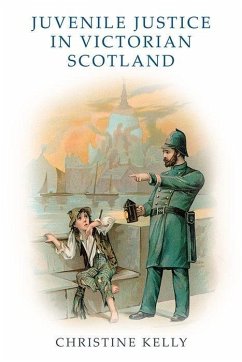'This book skilfully guides us through the landscape of child-welfare and institutional management and will be appreciated by both students and experienced researchers for its accessible writing style. Juvenile justice has recently acquired new currency, and this study adds a valuable perspective that has previously been missing.' Barry Godfrey, University of Liverpool 'Dr. Kelly's analysis of history of the distinctive Scottish system of juvenile justice is based on meticulous archival and legal research; on an astute reading of the historical literature on childhood; and on a clear grasp of the issues raised by the criminalisation of children. Above all, it shows the way in which this history continues to echo in debates about juvenile justice.' Nicola Lacey, London School of Economics Explores the history of juvenile justice and the day industrial school movement in 19th-century Scotland How did Scotland's criminal justice system respond to marginalised street children who found themselves on the wrong side of the law, often for simple vagrancy or other minor offences? This book examines the historical criminalisation of Scotland's Victorian children, as well as revealing the history and early success of the Scottish day industrial school movement - a philanthropic response to juvenile offending hailed as 'magic' in Charles Dickens's Household Words. With case studies ranging from police courts to the High Court of Justiciary, the book offers a lively account of the way children experienced Scotland's early juvenile justice system. Christine Kelly is a former British Academy Postdoctoral Fellow and is an Honorary Research Fellow at the School of Law, University of Glasgow. Cover image: 'I'm always a moving on' Jo from Bleak House (chromolitho), Frances Brundage. Private Collection (c) Look and Learn/Bridgeman Images Cover design: Stuart Dalziel [EUP logo] edinburghuniversitypress.com ISBN 978-1-4744-2734-0 Barcode
Hinweis: Dieser Artikel kann nur an eine deutsche Lieferadresse ausgeliefert werden.
Hinweis: Dieser Artikel kann nur an eine deutsche Lieferadresse ausgeliefert werden.








